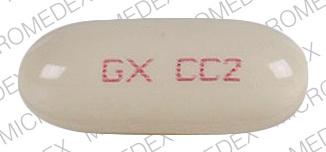Amprenavir Dosage
Applies to the following strengths: 150 mg; 50 mg; 15 mg/mL
Usual Adult Dose for:
Usual Pediatric Dose for:
Additional dosage information:
Usual Adult Dose for HIV Infection
Capsules: 1200 mg orally twice a day
Oral solution: 1400 mg (93 mL) orally twice a day
Usual Pediatric Dose for HIV Infection
Oral capsule formulation:
4 to 12 years or 13 to 16 years and less than 50 kg: 20 mg/kg orally twice a day or 15 mg/kg three times a day, not to exceed 2400 mg/day
13 to 16 years and 50 kg or more: 1200 mg orally twice a day
Oral solution formulation:
4 to 12 years or 13 to 16 years and less than 50 kg: 22.5 mg/kg (1.5 mL/kg) orally twice a day or 17 mg/kg (1.1 mL/kg) three times a day, not to exceed 2800 mg/day
13 to 16 years and 50 kg or more: 1400 mg (93 mL) orally twice a day
Renal Dose Adjustments
The oral solution contains propylene glycol and is contraindicated in patients with renal failure. Use with caution in patients with renal impairment due to increased risk of propylene glycol-associated adverse events and potential effect of propylene glycol metabolites on acid-base balance.
Liver Dose Adjustments
The oral solution contains propylene glycol and is contraindicated in patients with hepatic failure. Use with caution in patients with hepatic impairment due to increased risk of propylene glycol-associated adverse events.
Amprenavir use has not been studied in children with hepatic impairment. In adults, use with caution in moderate and severe hepatic impairment and reduce dosage as follows:
Child-Pugh score 5 to 8: 450 mg or 513 mg (34 mL oral solution) orally twice a day
Child-Pugh score 9 to 12: 300 mg (two 150 mg capsules) or 342 mg (23 mL oral solution) orally twice a day
Dose Adjustments
Adults:
If given in combination with ritonavir: Amprenavir capsules 1200 mg plus ritonavir 200 mg orally once a day or amprenavir capsules 600 mg plus ritonavir 100 mg twice a day
Precautions
Use of the oral solution is contraindicated in infants, children below 4 years of age, and pregnant women due to the potential risk of toxicity from the large amount of excipient propylene glycol in the formulation. In general, use of the solution should be limited to patients in whom the capsule formulation or other protease inhibitors are not feasible options. Particular caution is advised with respect to certain ethnic populations such as Asians, Eskimos, and Native Americans and women who may have a lower ability to metabolize propylene glycol. All patients receiving the oral solution should be monitored for signs of propylene glycol toxicity including seizures, stupor, tachycardia, hyperosmolality, lactic acidosis, renal toxicity, and hemolysis.
The capsule and oral solution formulations are not interchangeable on a milligram-per-milligram basis.
Dialysis
Data not available
Other Comments
Amprenavir may be taken with or without food; however, it should not be taken with a high-fat meal due to potential impairment of drug absorption.
The DHHS Panel on Clinical Practices for Treatment of HIV Infection does not recommend boosted or unboosted amprenavir as initial therapy due to the high pill burden.
Amprenavir should always be used in combination with other antiretroviral agents.
More about amprenavir
- Check interactions
- Compare alternatives
- Side effects
- During pregnancy
- Drug class: protease inhibitors
Related treatment guides
Further information
Always consult your healthcare provider to ensure the information displayed on this page applies to your personal circumstances.

